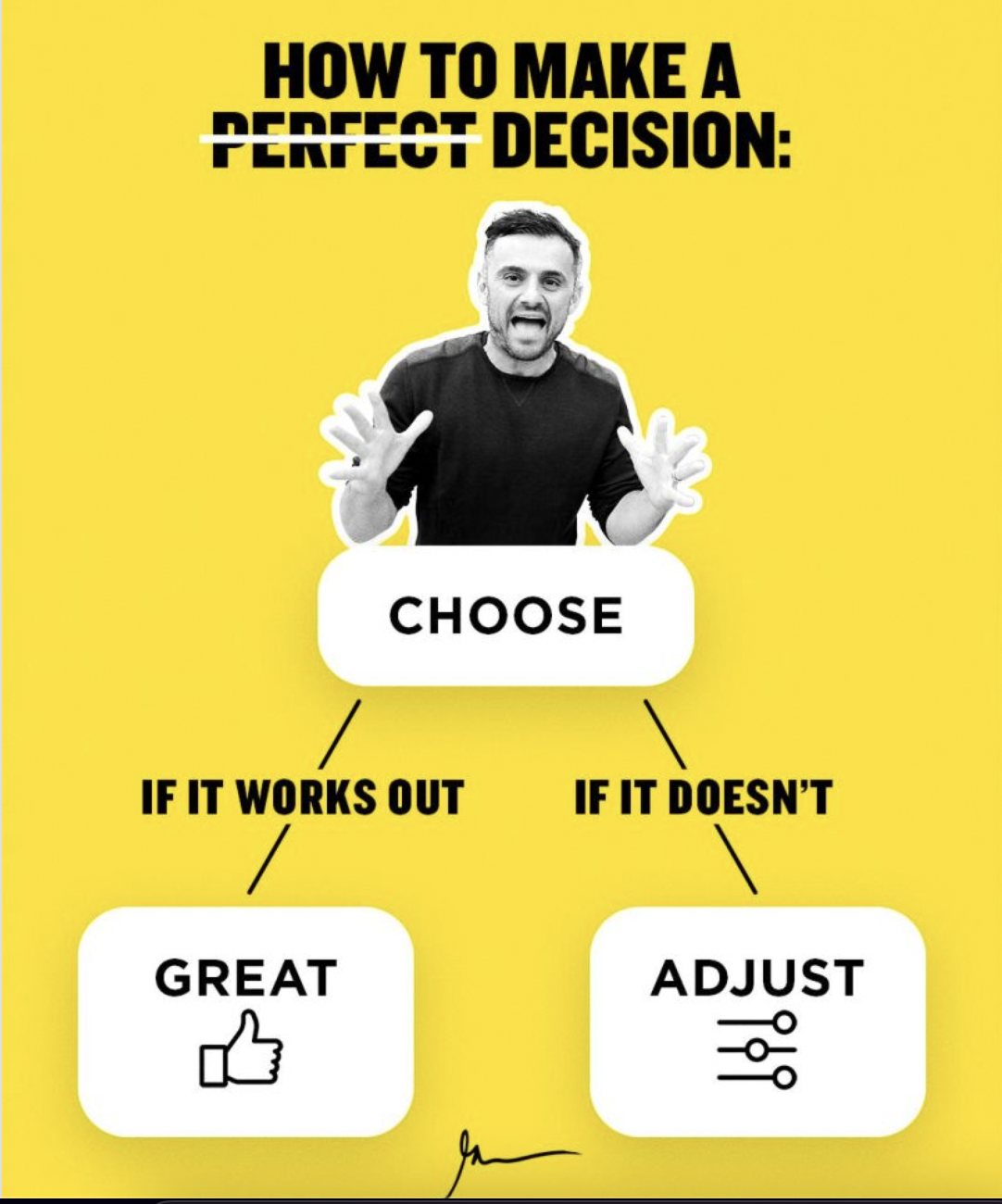Szymon's Zettelkasten
Powered by 🌱Roam GardenP: How to make a decision (when it cannot kill you)|
Keywords:: PermanentNote makePublic
Reference:: Gary Vee

Gary's picture

Decision-making is often overblown. Many times, we talk, debate, discuss things too much. Everyone has their opinions, concerns, objectives, agendas. This leads to endless conversations, often taking weeks during which nothing gets done. It's like everyone grabbed a blanket and started pulling in their direction in effect staying in the same page.
The truth is, in such a complicated environment (Extremistan) there's never the right decision. It's a myth.
Why is it a myth?
Because reality is too complex for us to understand how our inputs are going to impact reality. There are too many things we don't know.
The only right decision is to choose one option that most of the people involved can agree with (maybe the one that you should choose should be the one that will ensure harmony in the group and not particularly the one that has the biggest merit?) and test it out. The experiment will not only tell you whether you were right but also show you things you didn't know you didn't know.
In the complex reality, and the information industry is such, you don't get to the truth by thinking, you get there by doing. By putting your ideas into action and seeing what will happen. You have to talk P: You can make great discoveries by "asking" reality a question reality. Once you have the feedback, you have to reiterate your assumptions and repeat. You should do this until you achieve what you've set out to achieve—whether it's answering a question you had, completing a task, reaching a KPI, etc.
Let's look at a simplified example.
Let's say that you think that a red button will work best on your homepage. Your teammate, on the other hand, thinks that a green button will perform better.
Both of you have reasons to hold your position. You're saying that red is better because it stands out more than other colors. Your teammate says that green is superior because it fits the company's branding.
What to do?
A great way resolve your argument is to clash both hypotheses with reality in a form of a test. Show the green button to 50% of users and the red button to the rest and see which version will perform better. Provided that the experiment is measured correctly, it will determine the who was right. This will save you time, stress, and yield useful learnings.
The same can be done to more complex issues than determining the color of a button.
One challenge that may appear is that more complex issues may be too big to perform an experiment.
If that's the case, find a way to reduce the size of the issue while maintaining its core assumptions. For example, if the issue is whether you should enter a particular foreign market, don't direct 100% of your product offering and distribution there to test if it will work. Instead, test just one product on one distribution channel and iterate based on the results.
Relevant notes (PN: )
P: Ooch: Create the simplest experiment
It relates to being reasonable versus rational *. Debating often leads to slow and overintellectualized iterations. And the number of iterations is proportional to the speed of learning. In other words, the more you do the more you learn. (like the more ideas you generate the better you'll eventually generate). Being reasonable means, doing an action that makes most sense at the moment that cannot significantly hurt you and iterating from there.